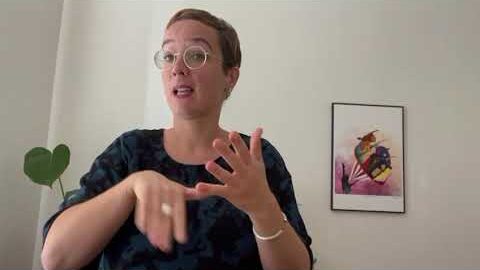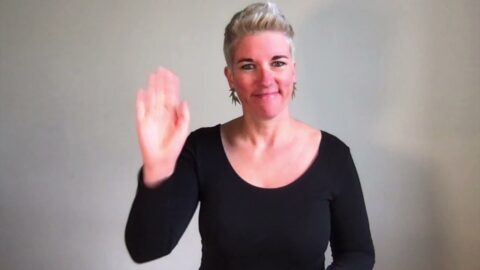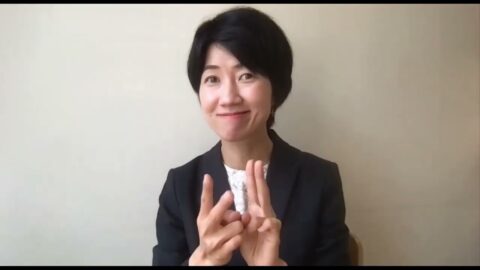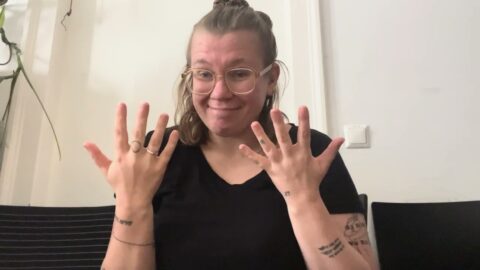Video in International Sign:
Commencement: May 2023 (closing date for applications: 1 February 2023)
Two positions available (for deaf people): Postdoctoral research associate (3 years) & PhD student (4 years)
Primary Investigator & Primary PhD supervisor: Jemina Napier
Co-Investigators & Second/Third PhD supervisors: Annelies Kusters and Maartje De Meulder
As a consequence of the Heriot-Watt University 1821 Appeal to encourage wider participation in the university of students from diverse backgrounds, the university successfully fundraised money for the Deaf BSL Project from various donors. One of the outcomes is to fund a PhD studentship and a Postdoctoral Research Associate position for two deaf people to conduct research on deaf people’s interactions through and with technologies, with one area of focus on the experiences of deaf students.
Given a fast-moving technological sector (including uses of artificial intelligence), the purpose of this project is to identify and explore diverse deaf people’s experiences of navigating society through and with technologies. Examples of technologies include digital devices (e.g. tablets, computers, smartphones and smart watches) with multiple functions such as video-calling and note apps, and AI-driven technologies like speech recognition applications, sign language avatars, VR applications, smart glasses. It also includes the use of assistive technologies such as hearing aids, braille devices and social robots. The project will explore the nexus between technologies and agency in deaf individuals and how this intersects with multimodal communication in the everyday lives of deaf people with diverse bodies and communicative repertoires: deaf signers and non-signers, deafblind people, deafdisabled people, and neurodivergent deaf people.
Using a community-participatory approach, which is inductive and collaborative, and creative, adaptive methods, a postdoctoral researcher and a PhD student will conduct related projects to explore the deaf participants and their interlocutors’ interactions through and with technologies. The project researchers will undertake multi-sited, linguistic ethnography to examine communicative phenomena across various settings (institutional and non-institutional), such as shops, restaurants, healthcare, education or work. One of the key areas of focus will be on deaf further and higher education students’ experiences of navigating their studies through and with technologies, and how technologies can enhance their learning and student life experience.
We are interested in the following questions:
- What technologies do deaf people use in everyday life to engage in face-to-face communication?
- What role do technologies play in human-machine interactions involving deaf people? What are deaf people’s perceptions of the role of AI in their everyday interactions?
- What technologies do deaf people opt to use in various institutional and non-institutional spaces?
- In what situations do deaf people opt to use technologies for the purposes of interpreter-mediated interaction?
To apply for the postdoctoral research associate position, see here: https://enzj.fa.em3.oraclecloud.com/hcmUI/CandidateExperience/en/sites/CX/job/2648/apply/email?lastSelectedFacet=CATEGORIES&selectedCategoriesFacet=300000002426432%3B300000002426470%3Chttps://enzj.fa.em3.oraclecloud.com/hcmUI/CandidateExperience/en/sites/CX/job/2648/?utm_medium=jobshare%3E
To apply for the PhD studentship, see here: https://www.hw.ac.uk/uk/scholarships/soss-bsl-phd-scholarship.htm
Closing date for applications: 1 February 2023
We aim to conduct interviews in February to appoint for both positions to commence in May 2023.





